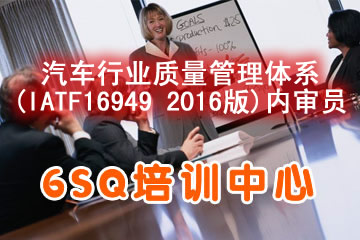中华人民共和国宪法(下)
中华人民共和国宪法(下)
第六节 民族自治地方的自治机关
第一百一十二条 民族自治地方的自治机关是自治区、自治州、自治县的人民代表大会和人民政府。
第一百一十三条 自治区、自治州、自治县的人民代表大会中,除实行区域自治的民族的代表外,其他居住在本行政区域内的民族也应当有适当名额的代表。
自治区、自治州、自治县的人民代表大会常务委员会中应当有实行区域自治的民族的公民担任主任或者副主任。
第一百一十四条 自治区主席、自治州州长、自治县县长由实行区域自治的民族的公民担任。
第一百一十五条 自治区、自治州、自治县的自治机关行使宪法第三章第五节规定的地方国家机关的职权,同时依照宪法、民族区域自治法和其他法律规定的权限行使自治权,根据本地方实际情况贯彻执行国家的法律、政策。
第一百一十六条 民族自治地方的人民代表大会有权依照当地民族的政治、经济和文化的特点,制定自治条例和单行条例。自治区的自治条例和单行条例,报全国人民代表大会常务委员会批准后生效。自治州、自治县的自治条例和单行条例,报省或者自治区的人民代表大会常务委员会批准后生效,并报全国人民代表大会常务委员会备案。
第一百一十七条 民族自治地方的自治机关有管理地方财政的自治权。凡是依照国家财政体制属于民族自治地方的财政收入,都应当由民族自治地方的自治机关自主地安排使用。
第一百一十八条 民族自治地方的自治机关在国家计划的指导下,自主地安排和管理地方性的经济建设事业。
国家在民族自治地方开发资源、建设企业的时候,应当照顾民族自治地方的利益。
第一百一十九条 民族自治地方的自治机关自主地管理本地方的教育、科学、文化、卫生、体育事业,保护和整理民族的文化遗产,发展和繁荣民族文化。
第一百二十条 民族自治地方的自治机关依照国家的军事制度和当地的实际需要,经国务院批准,可以组织本地方维护社会治安的公安部队。
第一百二十一条 民族自治地方的自治机关在执行职务的时候,依照本民族自治地方自治条例的规定,使用当地通用的一种或者几种语言文字。
第一百二十二条 国家从财政、物资、技术等方面帮助各少数民族加速发展经济建设和文化建设事业。
国家帮助民族自治地方从当地民族中大量培养各级干部、各种专业人才和技术工人。
第七节 人民法院和人民检察院
第一百二十三条 中华人民共和国人民法院是国家的审判机关。
第一百二十四条 中华人民共和国设立最高人民法院、地方各级人民法院和军事法院等专门人民法院。
最高人民法院院长每届任期同全国人民代表大会每届任期相同,连续任职不得超过两届。
人民法院的组织由法律规定。
第一百二十五条 人民法院审理案件,除法律规定的特别情况外,一律公开进行。被告人有权获得辩护。
第一百二十六条 人民法院依照法律规定独立行使审判权,不受行政机关、社会团体和个人的干涉。
第一百二十七条 最高人民法院是最高审判机关。
最高人民法院监督地方各级人民法院和专门人民法院的审判工作,上级人民法院监督下级人民法院的审判工作。
第一百二十八条 最高人民法院对全国人民代表大会和全国人民代表大会常务委员会负责。地方各级人民法院对产生它的国家权力机关负责。
第一百二十九条 中华人民共和国人民检察院是国家的法律监督机关。
第一百三十条 中华人民共和国设立最高人民检察院、地方各级人民检察院和军事检察院等专门人民检察院。
最高人民检察院检察长每届任期同全国人民代表大会每届任期相同,连续任职不得超过两届。
人民检察院的组织由法律规定。
第一百三十一条 人民检察院依照法律规定独立行使检察权,不受行政机关、社会团体和个人的干涉。
第一百三十二条 最高人民检察院是最高检察机关。
最高人民检察院领导地方各级人民检察院和专门人民检察院的工作,上级人民检察院领导下级人民检察院的工作。
第一百三十三条 最高人民检察院对全国人民代表大会和全国人民代表大会常务委员会负责。地方各级人民检察院对产生它的国家权力机关和上级人民检察院负责。
第一百三十四条 各民族公民都有用本民族语言文字进行诉讼的权利。人民法院和人民检察院对于不通晓当地通用的语言文字的诉讼参与人,应当为他们翻译。
在少数民族聚居或者多民族共同居住的地区,应当用当地通用的语言进行审理;起诉书、判决书、布告和其他文书应当根据实际需要使用当地通用的一种或者几种文字。
第一百三十五条 人民法院、人民检察院和公安机关办理刑事案件,应当分工负责,互相配合,互相制约,以保证准确有效地执行法律。
第四章 国旗、国歌、国徽、首都
第一百三十六条 中华人民共和国国旗是五星红旗。
中华人民共和国国歌是《义勇军进行曲》。
第一百三十七条 中华人民共和国国徽,中间是五星照耀下的天安门,周围是谷穗和齿轮。
第一百三十八条 中华人民共和国首都是北京。
全国人民代表大会 2004年3月14日 颁布
【英文】
the Constitution of the People's Republic of China(下)
Section 6 The Organs of Self-government of National Autonomous Areas
Article 112 The organs of self-government of national autonomous areas are the people's congresses and people's governments of autonomous regions, autonomous prefectures and autonomous counties.
Article 113 In the people's congress of an autonomous region, autonomous prefecture or autonomous county, in addition to the deputies of the nationality exercising regional autonomy in the administrative area, the other nationalities inhabiting the area are also entitled to appropriate representation.
Among the chairman and vice-chairmen of the standing committee of the people's congress of an autonomous region, autonomous prefecture or autonomous county there shall be one or more citizens of the nationality or nationalities exercising regional autonomy in the area concerned.
Article 114 The chairman of an autonomous region, the prefect of an autonomous prefecture or the head of an autonomous county shall be a citizen of the nationality exercising regional autonomy in the area concerned.
Article 115 The organs of self-government of autonomous regions, autonomous prefectures and autonomous counties exercise the functions and powers of local organs of state as specified in 5 of CHAPTER III of the Constitution. At the same time, they exercise the power of autonomy within the limits of their authority as prescribed by the Constitution, the Law of the People's Republic of China on Regional National Autonomy and other laws and implement the laws and policies of the state in the light of the existing local situation.
Article 116 The people's congresses of national autonomous areas have the power to enact regulations on the exercise of autonomy and other separate regulations in the light of the political, economic and cultural characteristics of the nationality or nationalities in the areas concerned. The regulations on the exercise of autonomy and other separate regulations of autonomous regions shall be submitted to the Standing Committee of the National People's Congress for approval before they go into effect. Those of autonomous prefectures and counties shall be submitted to the standing committees of the people's congresses of provinces or autonomous regions for approval before they go into effect, and they shall be reported to the Standing Committee of the National People's Congress for the record.
Article 117 The organs of self-government of the national autonomous areas have the power of autonomy in administering the finances of their areas. All revenues accruing to the national autonomous areas under the financial system of the state shall be managed and used by the organs of self-government of those areas on their own.
Article 118 The organs of self-government of the national autonomous areas independently arrange for and administer local economic development under the guidance of state plans.
In exploiting natural resources and building enterprises in the national autonomous areas, the state shall give due consideration to the interests of those areas.
Article 119 The organs of self-government of the national autonomous areas independently administer educational, scientific, cultural public health and physical culture affairs in their respective areas, protect and sift through the cultural heritage of the nationalities and work for a vigorous development of their cultures.
Article 120 The organs of self-government of the national autonomous areas may, in accordance with the military system of the state and practical local needs and with the approval of the State Council, organize local public security forces for the maintenance of public order.
Article 121 In performing their functions, the organs of self-government of the national autonomous areas, in accordance with the regulations on the exercise of autonomy in those areas, employ the spoken and written language or languages in common use in the locality.
Article 122 The state provides financial, material and technical assistance to the minority nationalities to accelerate their economic and cultural development.
The state helps the national autonomous areas train large numbers of cadres at various levels and specialized personnel and skilled workers of various professions and trades from among the nationality or nationalities in those areas.
Section 7 The People's Courts and The People's Procuratorates
Article 123 The people's courts of the People's Republic of China are the judicial organs of the state.
Article 124 The People's Republic of China establishes the Supreme People's Court and the people's courts at various local levels, military courts and other special people's courts.
The term of office of the President of the Supreme People's Court is the same as that of the National People's Congress. The President shall serve no more than two consecutive terms.
The organization of the people's courts is prescribed by law.
Article 125 Except in special circumstances as specified by law, all cases in the people's courts are heard in public. The accused has the right to defence.
Article 126 The people's courts exercise judicial power independently, in accordance with the provisions of the law, and are not subject to interference by any administrative organ, public organization or individual.
Article 127 The Supreme People's Court is the highest judicial organ.
The Supreme People's Court supervises the administration of justice by the people's courts at various local levels and by the special people's courts. People's courts at higher levels supervise the administration of justice by those at lower levels.
Article 128 The Supreme People's Court is responsible to the National People's Congress and its Standing Committee. Local people's courts at various levels are responsible to the organs of state power which created them.
Article 129 The people's procuratorates of the People's Republic of China are state organs for legal supervision.
Article 130 The People's Republic of China establishes the Supreme People's Procuratorate and the people's procuratorates at various local levels, military procuratorates and other special people's procuratorates.
The term of office of the Procurator-General of the Supreme People's Procuratorate is the same as that of the National People's Congress; the Procurator-General shall serve no more than two consecutive terms.
The organization of the people's procuratorates is prescribed by law.
Article 131 The people's procuratorates exercise procuratorial power independently, in accordance with the provisions of the law, and are not subject to interference by any administrative organ, public organization or individual.
Article 132 The Supreme People's Procuratorate is the highest procuratorial organ.
The Supreme People's Procuratorate directs the work of the people's procuratorates at various local levels and of the special people's procuratorates. People's procuratorates at higher levels direct the work of those at lower levels.
Article 133 The Supreme People's Procuratorate is responsible to the National People's Congress and its Standing Committee. People's procuratorates at various local levels are responsible to the organs of state power which created them and to the people's procuratorates at higher levels.
Article 134 Citizens of all China's nationalities have the right to use their native spoken and written languages in court proceedings. The people's courts and people's procuratorates should provide translation for any party to the court proceedings who is not familiar with the spoken or written languages commonly used in the locality.
In an area where people of a minority nationality live in a concentrated community or where a number of nationalities live together, court hearings should be conducted in the language or languages commonly used in the locality; indictments, judgments, notices and other documents should be written, according to actual needs, in the language or languages commonly used in the locality.
Article 135 The people's courts, the people's procuratorates and the public security organs shall, in handling criminal cases, divide their functions, each taking responsibility for its own work, and they shall coordinate their efforts and check each other to ensure the correct and effective enforcement of the law.
Chapter IV The National Flag, the National Anthem, the National Emblem and the Capital
Article 136 The national flag of the People's Republic of China is a red flag with five stars.
The national anthem of the People's Republic of China is "March of the Volunteers".
Article 137 The national emblem of the People's Republic of China consists of an image of Tian'anmen in its centre illuminated by five stars and encircled by ears of grain and a cogwheel.
Article 138 The capital of the People's Republic of China is Beijing.
第六节 民族自治地方的自治机关
第一百一十二条 民族自治地方的自治机关是自治区、自治州、自治县的人民代表大会和人民政府。
第一百一十三条 自治区、自治州、自治县的人民代表大会中,除实行区域自治的民族的代表外,其他居住在本行政区域内的民族也应当有适当名额的代表。
自治区、自治州、自治县的人民代表大会常务委员会中应当有实行区域自治的民族的公民担任主任或者副主任。
第一百一十四条 自治区主席、自治州州长、自治县县长由实行区域自治的民族的公民担任。
第一百一十五条 自治区、自治州、自治县的自治机关行使宪法第三章第五节规定的地方国家机关的职权,同时依照宪法、民族区域自治法和其他法律规定的权限行使自治权,根据本地方实际情况贯彻执行国家的法律、政策。
第一百一十六条 民族自治地方的人民代表大会有权依照当地民族的政治、经济和文化的特点,制定自治条例和单行条例。自治区的自治条例和单行条例,报全国人民代表大会常务委员会批准后生效。自治州、自治县的自治条例和单行条例,报省或者自治区的人民代表大会常务委员会批准后生效,并报全国人民代表大会常务委员会备案。
第一百一十七条 民族自治地方的自治机关有管理地方财政的自治权。凡是依照国家财政体制属于民族自治地方的财政收入,都应当由民族自治地方的自治机关自主地安排使用。
第一百一十八条 民族自治地方的自治机关在国家计划的指导下,自主地安排和管理地方性的经济建设事业。
国家在民族自治地方开发资源、建设企业的时候,应当照顾民族自治地方的利益。
第一百一十九条 民族自治地方的自治机关自主地管理本地方的教育、科学、文化、卫生、体育事业,保护和整理民族的文化遗产,发展和繁荣民族文化。
第一百二十条 民族自治地方的自治机关依照国家的军事制度和当地的实际需要,经国务院批准,可以组织本地方维护社会治安的公安部队。
第一百二十一条 民族自治地方的自治机关在执行职务的时候,依照本民族自治地方自治条例的规定,使用当地通用的一种或者几种语言文字。
第一百二十二条 国家从财政、物资、技术等方面帮助各少数民族加速发展经济建设和文化建设事业。
国家帮助民族自治地方从当地民族中大量培养各级干部、各种专业人才和技术工人。
第七节 人民法院和人民检察院
第一百二十三条 中华人民共和国人民法院是国家的审判机关。
第一百二十四条 中华人民共和国设立最高人民法院、地方各级人民法院和军事法院等专门人民法院。
最高人民法院院长每届任期同全国人民代表大会每届任期相同,连续任职不得超过两届。
人民法院的组织由法律规定。
第一百二十五条 人民法院审理案件,除法律规定的特别情况外,一律公开进行。被告人有权获得辩护。
第一百二十六条 人民法院依照法律规定独立行使审判权,不受行政机关、社会团体和个人的干涉。
第一百二十七条 最高人民法院是最高审判机关。
最高人民法院监督地方各级人民法院和专门人民法院的审判工作,上级人民法院监督下级人民法院的审判工作。
第一百二十八条 最高人民法院对全国人民代表大会和全国人民代表大会常务委员会负责。地方各级人民法院对产生它的国家权力机关负责。
第一百二十九条 中华人民共和国人民检察院是国家的法律监督机关。
第一百三十条 中华人民共和国设立最高人民检察院、地方各级人民检察院和军事检察院等专门人民检察院。
最高人民检察院检察长每届任期同全国人民代表大会每届任期相同,连续任职不得超过两届。
人民检察院的组织由法律规定。
第一百三十一条 人民检察院依照法律规定独立行使检察权,不受行政机关、社会团体和个人的干涉。
第一百三十二条 最高人民检察院是最高检察机关。
最高人民检察院领导地方各级人民检察院和专门人民检察院的工作,上级人民检察院领导下级人民检察院的工作。
第一百三十三条 最高人民检察院对全国人民代表大会和全国人民代表大会常务委员会负责。地方各级人民检察院对产生它的国家权力机关和上级人民检察院负责。
第一百三十四条 各民族公民都有用本民族语言文字进行诉讼的权利。人民法院和人民检察院对于不通晓当地通用的语言文字的诉讼参与人,应当为他们翻译。
在少数民族聚居或者多民族共同居住的地区,应当用当地通用的语言进行审理;起诉书、判决书、布告和其他文书应当根据实际需要使用当地通用的一种或者几种文字。
第一百三十五条 人民法院、人民检察院和公安机关办理刑事案件,应当分工负责,互相配合,互相制约,以保证准确有效地执行法律。
第四章 国旗、国歌、国徽、首都
第一百三十六条 中华人民共和国国旗是五星红旗。
中华人民共和国国歌是《义勇军进行曲》。
第一百三十七条 中华人民共和国国徽,中间是五星照耀下的天安门,周围是谷穗和齿轮。
第一百三十八条 中华人民共和国首都是北京。
全国人民代表大会 2004年3月14日 颁布
【英文】
the Constitution of the People's Republic of China(下)
Section 6 The Organs of Self-government of National Autonomous Areas
Article 112 The organs of self-government of national autonomous areas are the people's congresses and people's governments of autonomous regions, autonomous prefectures and autonomous counties.
Article 113 In the people's congress of an autonomous region, autonomous prefecture or autonomous county, in addition to the deputies of the nationality exercising regional autonomy in the administrative area, the other nationalities inhabiting the area are also entitled to appropriate representation.
Among the chairman and vice-chairmen of the standing committee of the people's congress of an autonomous region, autonomous prefecture or autonomous county there shall be one or more citizens of the nationality or nationalities exercising regional autonomy in the area concerned.
Article 114 The chairman of an autonomous region, the prefect of an autonomous prefecture or the head of an autonomous county shall be a citizen of the nationality exercising regional autonomy in the area concerned.
Article 115 The organs of self-government of autonomous regions, autonomous prefectures and autonomous counties exercise the functions and powers of local organs of state as specified in 5 of CHAPTER III of the Constitution. At the same time, they exercise the power of autonomy within the limits of their authority as prescribed by the Constitution, the Law of the People's Republic of China on Regional National Autonomy and other laws and implement the laws and policies of the state in the light of the existing local situation.
Article 116 The people's congresses of national autonomous areas have the power to enact regulations on the exercise of autonomy and other separate regulations in the light of the political, economic and cultural characteristics of the nationality or nationalities in the areas concerned. The regulations on the exercise of autonomy and other separate regulations of autonomous regions shall be submitted to the Standing Committee of the National People's Congress for approval before they go into effect. Those of autonomous prefectures and counties shall be submitted to the standing committees of the people's congresses of provinces or autonomous regions for approval before they go into effect, and they shall be reported to the Standing Committee of the National People's Congress for the record.
Article 117 The organs of self-government of the national autonomous areas have the power of autonomy in administering the finances of their areas. All revenues accruing to the national autonomous areas under the financial system of the state shall be managed and used by the organs of self-government of those areas on their own.
Article 118 The organs of self-government of the national autonomous areas independently arrange for and administer local economic development under the guidance of state plans.
In exploiting natural resources and building enterprises in the national autonomous areas, the state shall give due consideration to the interests of those areas.
Article 119 The organs of self-government of the national autonomous areas independently administer educational, scientific, cultural public health and physical culture affairs in their respective areas, protect and sift through the cultural heritage of the nationalities and work for a vigorous development of their cultures.
Article 120 The organs of self-government of the national autonomous areas may, in accordance with the military system of the state and practical local needs and with the approval of the State Council, organize local public security forces for the maintenance of public order.
Article 121 In performing their functions, the organs of self-government of the national autonomous areas, in accordance with the regulations on the exercise of autonomy in those areas, employ the spoken and written language or languages in common use in the locality.
Article 122 The state provides financial, material and technical assistance to the minority nationalities to accelerate their economic and cultural development.
The state helps the national autonomous areas train large numbers of cadres at various levels and specialized personnel and skilled workers of various professions and trades from among the nationality or nationalities in those areas.
Section 7 The People's Courts and The People's Procuratorates
Article 123 The people's courts of the People's Republic of China are the judicial organs of the state.
Article 124 The People's Republic of China establishes the Supreme People's Court and the people's courts at various local levels, military courts and other special people's courts.
The term of office of the President of the Supreme People's Court is the same as that of the National People's Congress. The President shall serve no more than two consecutive terms.
The organization of the people's courts is prescribed by law.
Article 125 Except in special circumstances as specified by law, all cases in the people's courts are heard in public. The accused has the right to defence.
Article 126 The people's courts exercise judicial power independently, in accordance with the provisions of the law, and are not subject to interference by any administrative organ, public organization or individual.
Article 127 The Supreme People's Court is the highest judicial organ.
The Supreme People's Court supervises the administration of justice by the people's courts at various local levels and by the special people's courts. People's courts at higher levels supervise the administration of justice by those at lower levels.
Article 128 The Supreme People's Court is responsible to the National People's Congress and its Standing Committee. Local people's courts at various levels are responsible to the organs of state power which created them.
Article 129 The people's procuratorates of the People's Republic of China are state organs for legal supervision.
Article 130 The People's Republic of China establishes the Supreme People's Procuratorate and the people's procuratorates at various local levels, military procuratorates and other special people's procuratorates.
The term of office of the Procurator-General of the Supreme People's Procuratorate is the same as that of the National People's Congress; the Procurator-General shall serve no more than two consecutive terms.
The organization of the people's procuratorates is prescribed by law.
Article 131 The people's procuratorates exercise procuratorial power independently, in accordance with the provisions of the law, and are not subject to interference by any administrative organ, public organization or individual.
Article 132 The Supreme People's Procuratorate is the highest procuratorial organ.
The Supreme People's Procuratorate directs the work of the people's procuratorates at various local levels and of the special people's procuratorates. People's procuratorates at higher levels direct the work of those at lower levels.
Article 133 The Supreme People's Procuratorate is responsible to the National People's Congress and its Standing Committee. People's procuratorates at various local levels are responsible to the organs of state power which created them and to the people's procuratorates at higher levels.
Article 134 Citizens of all China's nationalities have the right to use their native spoken and written languages in court proceedings. The people's courts and people's procuratorates should provide translation for any party to the court proceedings who is not familiar with the spoken or written languages commonly used in the locality.
In an area where people of a minority nationality live in a concentrated community or where a number of nationalities live together, court hearings should be conducted in the language or languages commonly used in the locality; indictments, judgments, notices and other documents should be written, according to actual needs, in the language or languages commonly used in the locality.
Article 135 The people's courts, the people's procuratorates and the public security organs shall, in handling criminal cases, divide their functions, each taking responsibility for its own work, and they shall coordinate their efforts and check each other to ensure the correct and effective enforcement of the law.
Chapter IV The National Flag, the National Anthem, the National Emblem and the Capital
Article 136 The national flag of the People's Republic of China is a red flag with five stars.
The national anthem of the People's Republic of China is "March of the Volunteers".
Article 137 The national emblem of the People's Republic of China consists of an image of Tian'anmen in its centre illuminated by five stars and encircled by ears of grain and a cogwheel.
Article 138 The capital of the People's Republic of China is Beijing.
没有找到相关结果
已邀请:





0 个回复